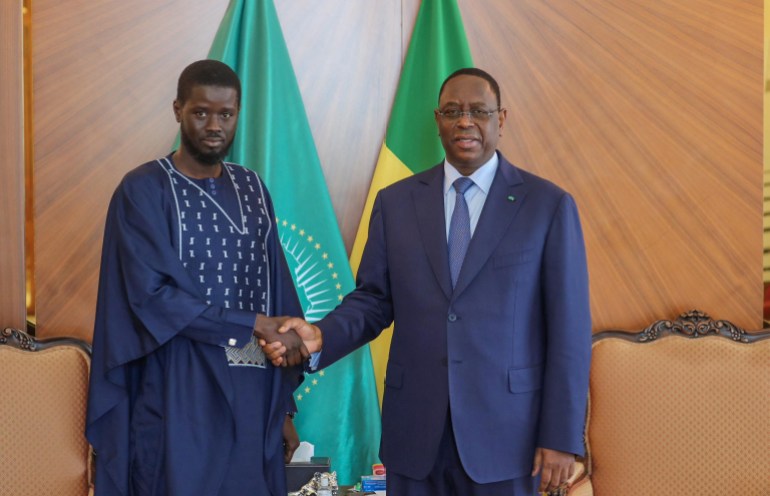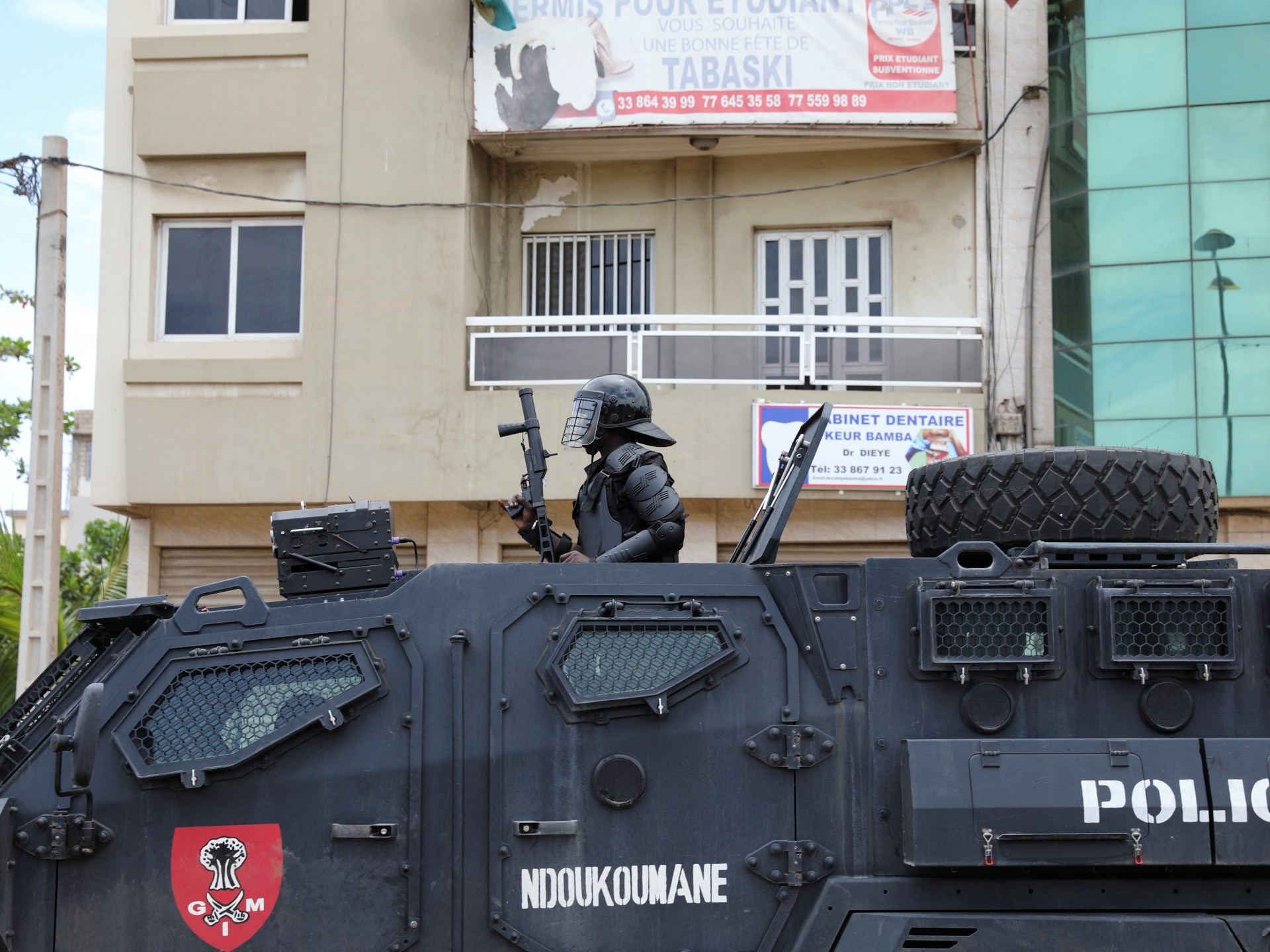The European Parliament’s Committee on Civil Liberties, Justice and Home Affairs (LIBE) has asked the European Commission to open an investigation into the mismanagement of European Union funds in Senegal after an Al Jazeera and porCausa Foundation joint investigation revealed how an EU-funded cross-border crime unit was used to repress pro-democracy protests in the West African country.
Juan Fernando Lopez Aguilar, the chair of the LIBE committee, sent the letter to Ylva Johansson, the EU commissioner for home affairs, and Juta Urpilainen, the commissioner for international partnerships, on March 25, asking the commission to “make all necessary efforts” so that the allegations are “investigated and full clarity is made on use of EU-funds”.
Aguilar told Al Jazeera and porCausa that there was a consensus in the parliamentary committee to call for this investigation, adding that “migration is a key issue for the EU”.
The joint investigation, published in February, focused on the Rapid Action Surveillance and Intervention Group, known as GAR-SI – a 74-million-euro ($81.3m) project funded by the EU Emergency Trust Fund for Africa (EUTF) and implemented by the Spanish government development agency FIIAPP between 2017 and 2023.
The project’s stated goal was to create and equip a special intervention unit in the town of Kidira along the border area between Mali and Senegal to fight armed groups, smuggling, trafficking and other cross-border crimes.
However, the investigation found visual evidence, Spanish government contracts, a confidential evaluation report and three sources close to the project that confirmed the GAR-SI unit was used by then President Macky Sall’s government to repress protesters in Senegal during demonstrations between 2021 and 2023.
At least 60 people died during the protests, Amnesty International estimates. No one has been prosecuted to date.
The political unrest also coincided with a big spike in migration towards Spain.
“The repression pushed many young people to migrate toward the Canary Islands, the most dangerous migratory route,” said Aguilar, adding that instability and repression affect migratory peaks.
“During the protests, the Senegalese police relaxed border surveillance and focused on suppressing demonstrations,” he added.
Migration and security nexus
The investigation’s evidence was also discussed in the Spanish parliament in March, when MP Ines Granollers asked the government whether it would suspend the supply of riot gear material to Senegal authorised in 2023 and if it would investigate the allegations of misuse of EU funds.
Another MP, Jon Inarritu, also asked whether the government would assess the human rights effects of security equipment it sends to Senegal and other countries it cooperates with.
Amnesty International has also demanded the Spanish government open an independent inquiry into the illegitimate use of exported material from Spain to Senegal.
The rights group recommended that the government revoke the licences for the equipment if it was found to have been misused, and not to authorise any new transfers until the authorities responsible for the human rights violations in Senegal are investigated and prosecuted.
The EUTF financial instrument funded projects from 2015 until 2022 across 26 African countries with a stated aim “to address the root causes of migration”.
It was seen as an attempt by EU technocrats to limit movement towards Europe at all costs and came under scrutiny by civil society organisations, NGOs and experts for its lack of human rights impact assessments, accountability mechanisms and lack of transparency.
The case shows “the risks attached to migration control capacity building”, according to Leonie Jegen, a scholar from the University of Amsterdam who has researched EU funds in Senegal.
“It’s a cynical reminder of the potential of violence and oppression that is inherent in migration capacity building programmes sitting at the migration and security nexus.”

Senegal last month elected Bassirou Diomaye Faye as its new president. He ran on a campaign that promised a reassessment of foreign contracts and relations with the EU and other countries but has not specified whether that included development and migration projects funded by the EU.
The legislative period in Brussels is coming to an end this week, and as EU Parliament elections are scheduled to start on June 6, any action on the matter from the LIBE committee will probably happen once new MEPs are elected in June.
‘Clarifying facts’
Responding to Al Jazeera on Tuesday, the FIIAPP and Spain’s Ministry of Foreign Affairs said the development agency and the Spanish embassy in Senegal were coordinating with the EU delegation in the country “to clarify the facts”.
They also made themselves available to members of the European Commission to “provide them with all the necessary information about the project”, the joint statement added.
“The Kidira unit … in no case has been trained in matters of public order or control of masses,” it said, adding that as per European financing procedures, any supplies Senegal received as part of the project could only be used for the objectives of that specific project.
The European Commission responded to Al Jazeera saying the EU “has not received any concrete evidence to support any human rights abuse by the GAR-SI unit”.
However, it added, “the EU Delegation has decided nevertheless to maintain a high degree of vigilance and close and regular dialogue with the Gendarmerie.”
The EU said a “high-level exchange took place [in] early March” between its representatives and Senegal’s Gendarmerie Nationale.
“Senegalese authorities shared comprehensive explanations regarding the GAR-SI unit operations and declined any involvement of the unit in the repression of demonstrations,” the EU told Al Jazeera. “Among the explanations provided, it was clarified that the images of GAR-SI vehicles presented in the investigation were from a different village than the one mentioned in the article.”
However, Al Jazeera had geolocated the video at the centre of the investigation to confirm the presence of GAR-SI vehicles.
“The EU has been in close contact with the Spanish authorities on this matter,” the commission said. “Spanish authorities have also concluded that no evidence supports claims made.”
Al Jazeera and porCausa also approached Senegal’s ministries of interior and foreign affairs for comment but did not receive a reply before publication.

